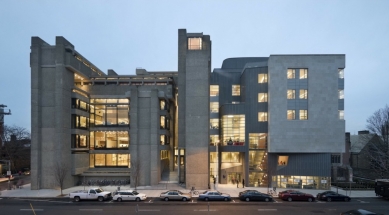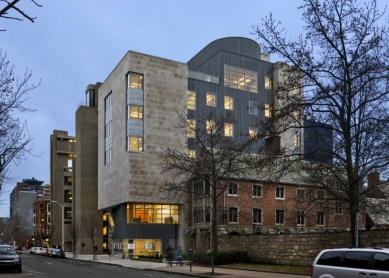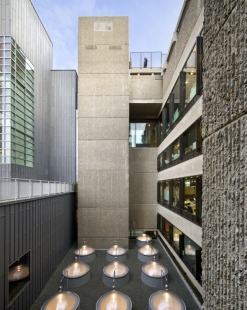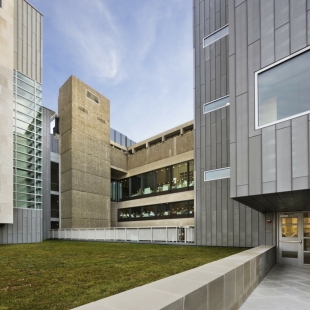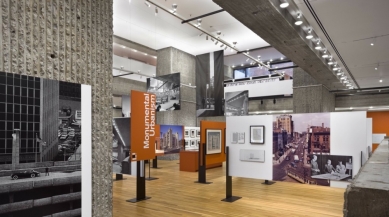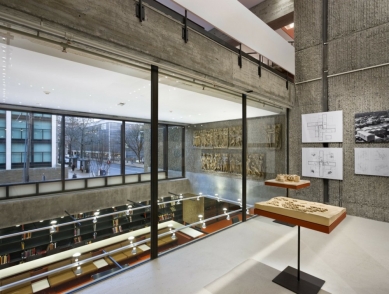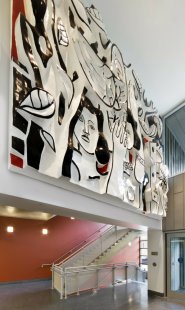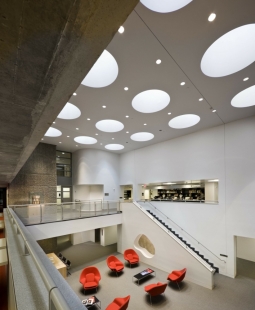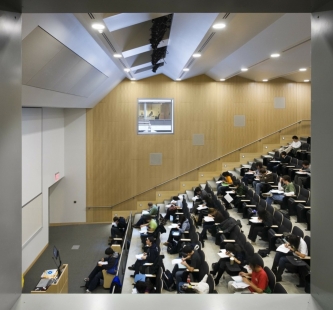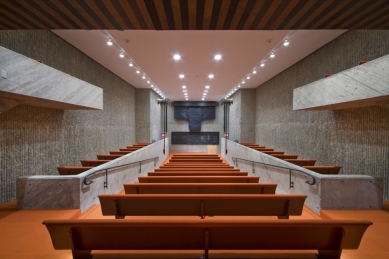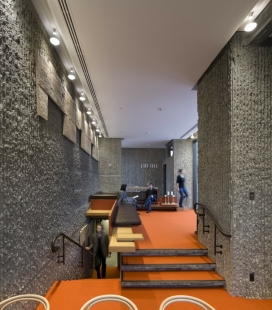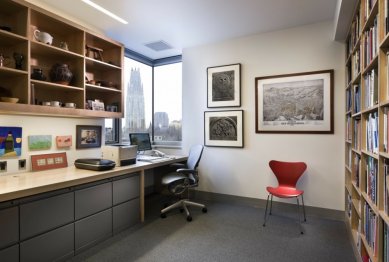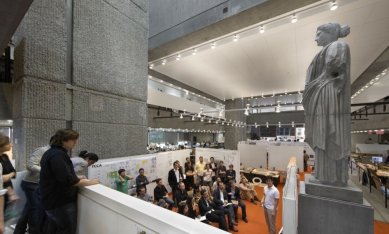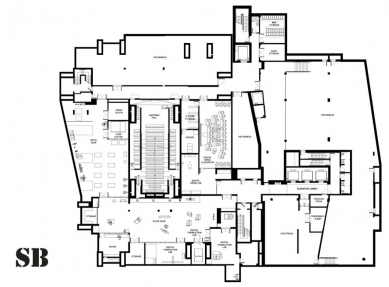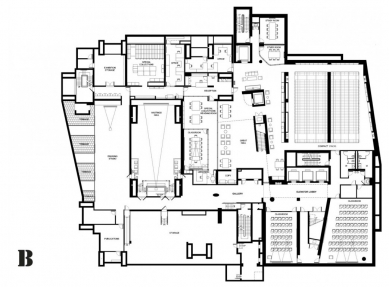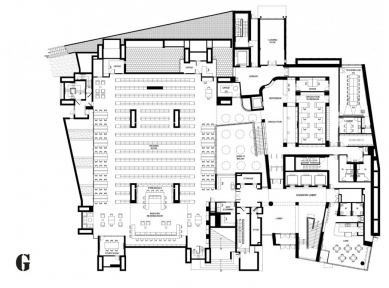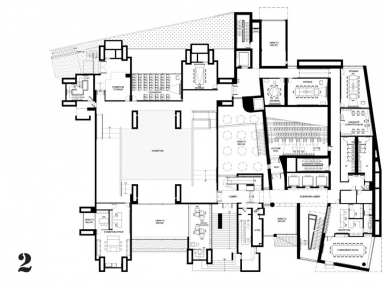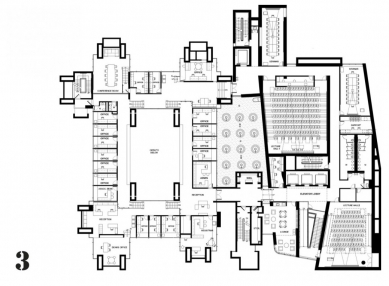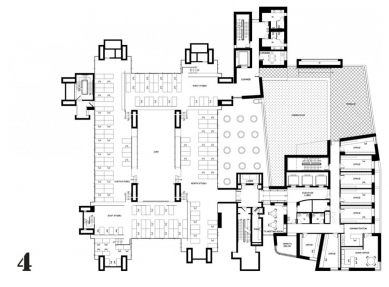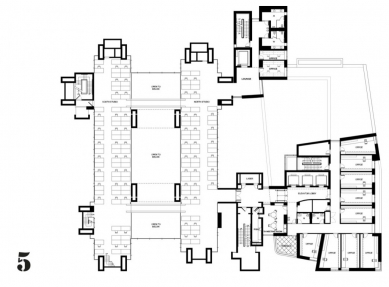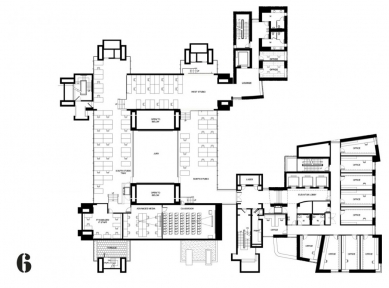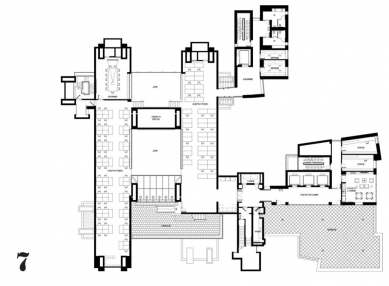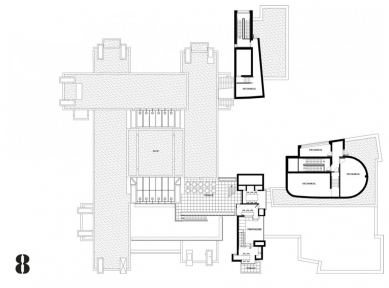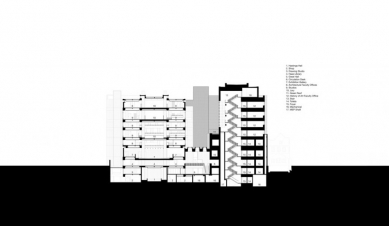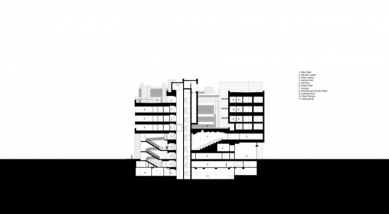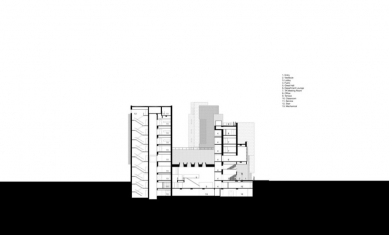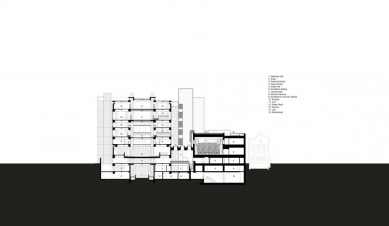
The Jeffrey Loria Center for the History of Art

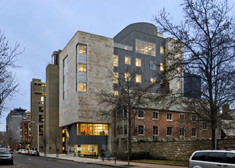 |
| foto: © Peter Aaron/Esto |
The 114,000 sqf Brutalist building, which is constructed of cast-in-place concrete, has a total of 37 different levels on nine floors, two below grade, and is a cornerstone of Yale’s vibrant arts campus. As a result of a 1996 planning study, Yale University decided to undertake the exterior and interior renovation of the structure along with the addition of a seven-story History of Art Building that allows for an expanded Art and Architecture Library, classrooms, seminar rooms, lecture halls, faculty offices, lounge, and public café. The architects designed the project to qualify for a LEED Silver rating.
The design results from the integration of programmatic, structural and mechanical needs. It includes the restoration of exterior walls; the installation of historically correct windows; and upgrades to all building facilities including the exhibition gallery, jury and studio spaces; study areas; and administrative and faculty offices. It also introduces new lighting and furnishings throughout and brings the structure into compliance with current building and fire code regulations.
The new 87,000 sqf Jeffrey H. Loria Center for the History of Art, while an addition, is designed to present its own iconic presence in the overall composition. Its main volume is clad in limestone and zinc panels, with the intersections to the Rudolph Building rendered in glass and aluminum panels, thus reinforcing both the integration and articulation of the two structures.
This extraordinary project represents the culmination of Charles Gwathmey’s forty-five year relationship with the university’s School of Architecture. Paul Rudolph was its chairman during Mr. Gwathmey’s studies and also became his mentor.
0 comments
add comment


